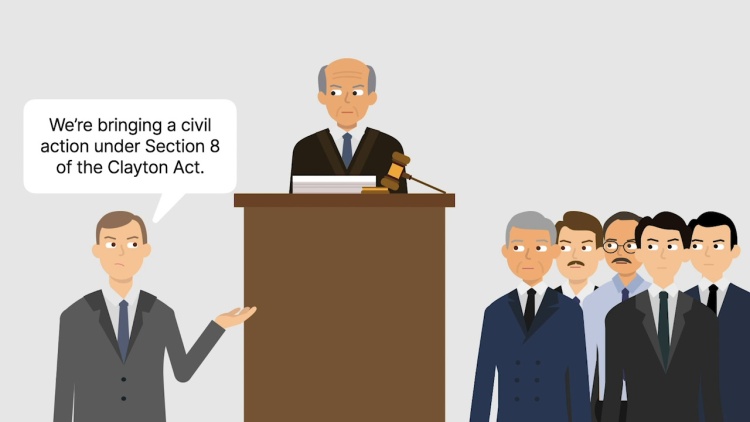United States v. W.T. Grant Co.
United States Supreme Court
345 U.S. 629 (1953)

- Written by Josh Lee, JD
Facts
Hancock (defendant) was a partner in the investment banking firm Lehman Bros. The practice of Lehman Bros. was to ask for representation on board of directors of companies for which it did financing. Hancock served on the board of directors of six corporations (defendants). Of the six corporations, each competes with one other. W.T. Grant Co. competes with S.H. Kress & Co.; Sears Roebuck & Co. competes with Bond Stores; and Kroger Co. competes with Jewel Tea Co. The United States government (the Government) sued Hancock and the corporations, alleging that the service on these boards of directors violated § 8 of the Clayton Act’s prohibition of interlocking corporate directorates. The Government sought an order to terminate the interlocks and an injunction against future violations of § 8 of the Clayton Act. Prior to the lawsuit, the Government attempted to persuade Hancock through five years of administrative efforts that the service on these boards of directors was illegal. After the lawsuit was filed, Hancock resigned from three of the boards of directors, ending the allegedly improper interlocks. The district court granted summary judgment to Hancock and the corporations because the lawsuit had become moot. The Government petitioned the Supreme Court of the United States for review.
Rule of Law
Issue
Holding and Reasoning (Clark, J.)
Dissent (Douglas, J.)
What to do next…
Here's why 908,000 law students have relied on our case briefs:
- Written by law professors and practitioners, not other law students. 47,100 briefs, keyed to 996 casebooks. Top-notch customer support.
- The right amount of information, includes the facts, issues, rule of law, holding and reasoning, and any concurrences and dissents.
- Access in your classes, works on your mobile and tablet. Massive library of related video lessons and high quality multiple-choice questions.
- Easy to use, uniform format for every case brief. Written in plain English, not in legalese. Our briefs summarize and simplify; they don’t just repeat the court’s language.






